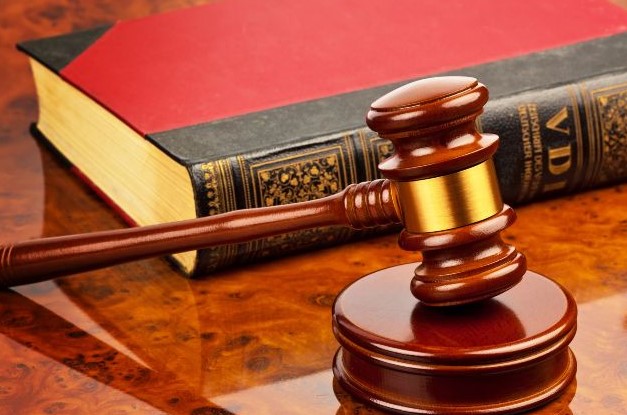Navigating Deceased Estate Administration: A Guide to the Role of Deceased Estate Lawyers

Coping with a loved one’s aftermath may make the already trying process of losing them much more demanding. It might be challenging for laypeople to legally handle a deceased person’s estate. Deceased estate administration manages and allocates a person’s assets and obligations after passing. Executing the decedent’s testament or will, paying off any debts, and transferring the remaining assets to the rightful owner are all requirements of this type of administration. This article discusses this complicated process and the vital role of deceased estate lawyers in helping families through this complex time.
Understanding Deceased Estate Administration
Deceased estate administration can be simplified into several steps requiring consideration:
Probate or Letters of Administration
The first process at the beginning of estate administration is the probate of the deceased’s will. If the decedent died testate, that is, he wrote a valid will before his demise, the appointed executor of the will must make an application for probate. This is the court’s declaration of the will authority. However, if there is no valid document or the appointed executor cannot act as one, the next of kin will apply for Letters of Administration. The next of kin will also apply if the court has invalidated the will.
Asset Identification and Valuation
Before the executor or administrator can distribute the assets, et al., he must identify and catalogue them. A deceased person can own real properties, bank accounts, investments, personal properties, business inventory, intellectual properties, etc. Proper valuation of the asset helps ascertain the actual value of the estate. Additionally, it helps assure a fair distribution of the estate among the dependents.
Payment of Debts and Taxes
Before distributing the remaining estate to the beneficiaries, the executor or administrator must settle all debts and taxes the deceased owes. The executor will pay all or most of the debt or levies, including but not limited to burial expenses, unpaid bills, mortgages or loans, burial and death expenses, and the income of the estate, among others. This ensures the remaining collections are distributed wholly among the dependents without further claims to creditors.
Distribution of Assets
After the debts and taxes have been cleared from the estate, the remaining asset is given out based on the will or the law of intestate succession where there is no will. This step needs more formal record-keeping and legal forms to be filed to ensure that all assets are liquid for the beneficiary. The will of the deceased guides executors or administrators or follows the set laws if there is no will.
The Role of Deceased Estates Lawyers
Deceased estates lawyers are essential in helping executors and administrators navigate the difficulties of estate administration, providing knowledge and assistance in several ways.
Legal Guidance and Expertise
Deceased estate attorneys are well-versed in the laws of the estate, the procedures of probate, and any applicable legislation. Therefore, they can guide the clients through legal complications and ensure they comply with the law. They keep track of the changes in the rules and protocols to ensure their clients understand the nuances of the deceased estate administration.
Will Drafting and Interpretation
Such attorneys can guide the clients in drafting a legal will that expresses their intentions adequately and safeguards their interests. They are also skilled at interpreting the will’s terms and advising the client on the possible consequences. This can be essential because the attorney pays attention to formalities and small details that could render a simple will subject to divisions and contests.
Probate and Estate Administration
Obtaining probate or letters of administration can be challenging and time-consuming, but deceased estate attorneys simplify the process by preparing and lodging the necessary paperwork at the court. They guide clients through every step of the probate application process, from collecting all the required information and completing probate applications to representing clients in court appearances. By taking advantage of their expertise and familiarity with the probate code and court rules, they can address a variety of probate procedures on behalf of clients to expedite the estate’s administration.
Asset Valuation and Distribution
Deceased estate attorneys also play a critical role in determining the value of estate assets and their distribution in line with applicable laws and the decedent’s will or close family members. They help clients determine whether the property must go through probate by identifying and listing all types of estate assets, including real estate, bank accounts, securities, personal property, and business assets, using rigorous research and accounting methods. More importantly, they examine the value of the assets they collect and categorise them, significantly reducing the likelihood of an asset dispute between beneficiaries.
Mediation and Dispute Resolution
Deceased estate lawyers serve as mediators, facilitators, and advocates when their clients are embroiled in family conflicts or involved in disputes with other potential beneficiaries. They handle settlement disputes and hire mediators or represent clients in court proceedings. Lawyers who negotiate understand the parties’ needs and leverage their current situation to negotiate the best terms while respecting the law. The principles help promote communication and reach a compromise, promoting a peaceful way to dispel conflicts that minimise emotional and financial dissimilarities.
Conclusion
Deceased estate administration is a complex and daunting operation, requiring a focus on a wide range of subjects and offering room for many errors. By engaging a deceased estate lawyer, individuals may alleviate much of the burden and difficulty linked with the deceased administration and guarantee that the deceased’s final instructions are carried out in full legal compliance. Now that you understand the critical importance of these professionals’ roles and the various variables to weigh at every turn, you can face the problem head-on with a renewed sense of awareness and confidence. Throughout the process, your deceased estate attorney will be your most trusted confidant and ally, providing professional advice and assistance and showing that they have your best interests at heart.







